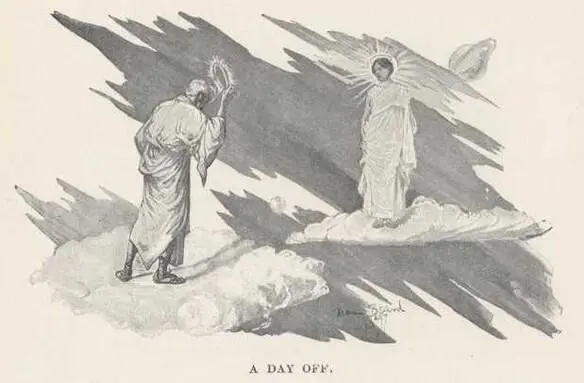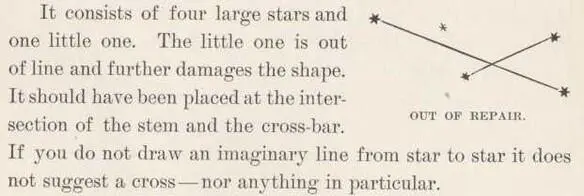Mark Twain - Following the Equator
Здесь есть возможность читать онлайн «Mark Twain - Following the Equator» весь текст электронной книги совершенно бесплатно (целиком полную версию без сокращений). В некоторых случаях можно слушать аудио, скачать через торрент в формате fb2 и присутствует краткое содержание. Год выпуска: 2004, Жанр: Классическая проза, Юмористическая проза, на английском языке. Описание произведения, (предисловие) а так же отзывы посетителей доступны на портале библиотеки ЛибКат.
- Название:Following the Equator
- Автор:
- Жанр:
- Год:2004
- ISBN:нет данных
- Рейтинг книги:3 / 5. Голосов: 1
-
Избранное:Добавить в избранное
- Отзывы:
-
Ваша оценка:
- 60
- 1
- 2
- 3
- 4
- 5
Following the Equator: краткое содержание, описание и аннотация
Предлагаем к чтению аннотацию, описание, краткое содержание или предисловие (зависит от того, что написал сам автор книги «Following the Equator»). Если вы не нашли необходимую информацию о книге — напишите в комментариях, мы постараемся отыскать её.
Following the Equator — читать онлайн бесплатно полную книгу (весь текст) целиком
Ниже представлен текст книги, разбитый по страницам. Система сохранения места последней прочитанной страницы, позволяет с удобством читать онлайн бесплатно книгу «Following the Equator», без необходимости каждый раз заново искать на чём Вы остановились. Поставьте закладку, и сможете в любой момент перейти на страницу, на которой закончили чтение.
Интервал:
Закладка:

Next Day. Sure enough, it has happened. Yesterday it was September 8, Sunday; to-day, per the bulletin-board at the head of the companionway, it is September 10, Tuesday. There is something uncanny about it. And uncomfortable. In fact, nearly unthinkable, and wholly unrealizable, when one comes to consider it. While we were crossing the 180th meridian it was Sunday in the stern of the ship where my family were, and Tuesday in the bow where I was. They were there eating the half of a fresh apple on the 8th, and I was at the same time eating the other half of it on the 10th—and I could notice how stale it was, already. The family were the same age that they were when I had left them five minutes before, but I was a day older now than I was then. The day they were living in stretched behind them half way round the globe, across the Pacific Ocean and America and Europe; the day I was living in stretched in front of me around the other half to meet it. They were stupendous days for bulk and stretch; apparently much larger days than we had ever been in before. All previous days had been but shrunk-up little things by comparison. The difference in temperature between the two days was very marked, their day being hotter than mine because it was closer to the equator.
Along about the moment that we were crossing the Great Meridian a child was born in the steerage, and now there is no way to tell which day it was born on. The nurse thinks it was Sunday, the surgeon thinks it was Tuesday. The child will never know its own birthday. It will always be choosing first one and then the other, and will never be able to make up its mind permanently. This will breed vacillation and uncertainty in its opinions about religion, and politics, and business, and sweethearts, and everything, and will undermine its principles, and rot them away, and make the poor thing characterless, and its success in life impossible. Every one in the ship says so. And this is not all—in fact, not the worst. For there is an enormously rich brewer in the ship who said as much as ten days ago, that if the child was born on his birthday he would give it ten thousand dollars to start its little life with. His birthday was Monday, the 9th of September.
If the ships all moved in the one direction—westward, I mean—the world would suffer a prodigious loss—in the matter of valuable time, through the dumping overboard on the Great Meridian of such multitudes of days by ships crews and passengers. But fortunately the ships do not all sail west, half of them sail east. So there is no real loss. These latter pick up all the discarded days and add them to the world's stock again; and about as good as new, too; for of course the salt water preserves them.
CHAPTER V.
Noise proves nothing. Often a hen who has merely laid an egg cackles as if she had laid an asteroid.
—Pudd'nhead Wilson's New Calendar.
A lesson in Pronunciation—Reverence for Robert Burns—The Southern Cross—Troublesome Constellations—Victoria for a Name—Islands on the Map—Alofa and Fortuna—Recruiting for the Queensland Plantations—Captain Warren's NoteBook—Recruiting not thoroughly Popular
WEDNESDAY, Sept. 11. In this world we often make mistakes of judgment. We do not as a rule get out of them sound and whole, but sometimes we do. At dinner yesterday evening-present, a mixture of Scotch, English, American, Canadian, and Australasian folk—a discussion broke out about the pronunciation of certain Scottish words. This was private ground, and the non-Scotch nationalities, with one exception, discreetly kept still. But I am not discreet, and I took a hand. I didn't know anything about the subject, but I took a hand just to have something to do. At that moment the word in dispute was the word three. One Scotchman was claiming that the peasantry of Scotland pronounced it three, his adversaries claimed that they didn't—that they pronounced it 'thraw'. The solitary Scot was having a sultry time of it, so I thought I would enrich him with my help. In my position I was necessarily quite impartial, and was equally as well and as ill equipped to fight on the one side as on the other. So I spoke up and said the peasantry pronounced the word three, not thraw. It was an error of judgment. There was a moment of astonished and ominous silence, then weather ensued. The storm rose and spread in a surprising way, and I was snowed under in a very few minutes. It was a bad defeat for me—a kind of Waterloo. It promised to remain so, and I wished I had had better sense than to enter upon such a forlorn enterprise. But just then I had a saving thought—at least a thought that offered a chance. While the storm was still raging, I made up a Scotch couplet, and then spoke up and said:
"Very well, don't say any more. I confess defeat. I thought I knew, but I see my mistake. I was deceived by one of your Scotch poets."
"A Scotch poet! O come! Name him."
"Robert Burns."
It is wonderful the power of that name. These men looked doubtful—but paralyzed, all the same. They were quite silent for a moment; then one of them said—with the reverence in his voice which is always present in a Scotchman's tone when he utters the name.
"Does Robbie Burns say—what does he say?"
"This is what he says:
'There were nae bairns but only three—
Ane at the breast, twa at the knee.'"
It ended the discussion. There was no man there profane enough, disloyal enough, to say any word against a thing which Robert Burns had settled. I shall always honor that great name for the salvation it brought me in this time of my sore need.
It is my belief that nearly any invented quotation, played with confidence, stands a good chance to deceive. There are people who think that honesty is always the best policy. This is a superstition; there are times when the appearance of it is worth six of it.
We are moving steadily southward-getting further and further down under the projecting paunch of the globe. Yesterday evening we saw the Big Dipper and the north star sink below the horizon and disappear from our world. No, not "we," but they. They saw it—somebody saw it—and told me about it. But it is no matter, I was not caring for those things, I am tired of them, any way. I think they are well enough, but one doesn't want them always hanging around. My interest was all in the Southern Cross. I had never seen that. I had heard about it all my life, and it was but natural that I should be burning to see it. No other constellation makes so much talk. I had nothing against the Big Dipper—and naturally couldn't have anything against it, since it is a citizen of our own sky, and the property of the United States—but I did want it to move out of the way and give this foreigner a chance. Judging by the size of the talk which the Southern Cross had made, I supposed it would need a sky all to itself.
But that was a mistake. We saw the Cross to-night, and it is not large. Not large, and not strikingly bright. But it was low down toward the horizon, and it may improve when it gets up higher in the sky. It is ingeniously named, for it looks just as a cross would look if it looked like something else. But that description does not describe; it is too vague, too general, too indefinite. It does after a fashion suggest a cross—a cross that is out of repair—or out of drawing; not correctly shaped. It is long, with a short cross-bar, and the cross-bar is canted out of the straight line.

Интервал:
Закладка:
Похожие книги на «Following the Equator»
Представляем Вашему вниманию похожие книги на «Following the Equator» списком для выбора. Мы отобрали схожую по названию и смыслу литературу в надежде предоставить читателям больше вариантов отыскать новые, интересные, ещё непрочитанные произведения.
Обсуждение, отзывы о книге «Following the Equator» и просто собственные мнения читателей. Оставьте ваши комментарии, напишите, что Вы думаете о произведении, его смысле или главных героях. Укажите что конкретно понравилось, а что нет, и почему Вы так считаете.











